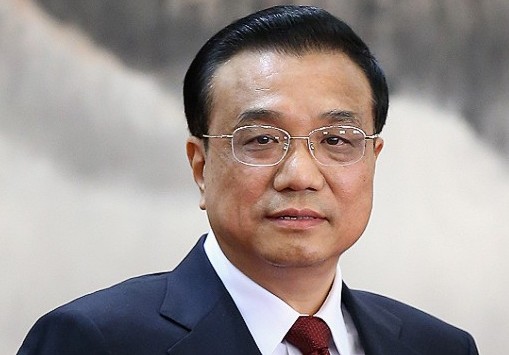'Likonomics,' the latest economic buzzword in China
 0 Comment(s)
0 Comment(s) Print
Print E-mail China.org.cn, July 10, 2013
E-mail China.org.cn, July 10, 2013
What are the hottest economic buzzwords in China ? Besides the ever popular keywords like "urbanization," "shadow bank" and "liquidity," two other words have surfaced: "likonomics" and "Keqiang Index."
|
|
|
"Likonomics" was coined at the end of June by Barclays Capital to describe a series of measures adopted by the State Council, led by Premier Li Keqiang (hence the name). [File photo] |
"Likonomics" was coined at the end of June by Barclays Capital to describe a series of measures adopted by the State Council, led by Premier Li Keqiang (hence the name). The measures were passed in an effort to ensure the sustainability of China's economy.. According to Barclays, Likonomics has three key "pillars": no stimulus, deleveraging and structural reform. The word has gained instant popularity in China, an indication of the widespread concern for economic sustainability in China, said Barclays.
The "Keqiang Index," a term coined by The Economist in 2010, was created as an alternative indicator to measure China's GDP growth. When Li was the party chief in the Liaoning Province in 2007, he measured the province's economic progress via increments of power consumption, rail freight and lending - indicators that have nothing to do with the local governments' GDP cult and cannot be easily manipulated. The Keqiang Index, therefore, is thought to more accurately reflect the performance of China's economy than more traditional measures.
"Urbanization," a word first used at the10th Five-Year Plan for National Economic and Social Development, continues to be a trendy term in Chinese economic circles this year. The newly installed Chinese government has pledged to advance urbanization in a steady, active and prudent way. The overall development plan is expected to be unveiled in the near future.
China's urban population accounted for 52.6 percent of the country's total population at the end of 2012, a 1.3 percent increase since the same time in 2011. But about 200 million new urbanites are without permanent resident permits. According to the latest news, the Chinese government is considering relaxing the household registration system, or hukou, in smaller cities to accommodate the growing urban population.
"Liquidity" became a buzzword overnight at the end of June, when the overnight lending rate jumped to over 13 percent on June 20, while an intra-day gauge of overnight repurchase rates hit a record 30 percent. However,,the central bank said that liquidity is ample and has indicated that it will not inject more cash.. Such statements have demonstrated the State Council's commitment to efficiently using the available cash.
In the first half of year, more and more consideration has been given to the possible risks of "shadowshadowshadowing," the exact meaning of which has divided academics. Unlike shadow-banking in the West, trusts and financing products are supervised by the China Banking Regulatory Commission. A positive view of shadow banking is that it effectively supported the development of China's real economy and is a prelude of the marketization of interest rates. Eitherway, shadow bankinghas profoundly changed the structure and mode of China's financial development.
Other buzzwords on the list include "replacing sales taxes with value-added taxes," "reopen approvals of initial public offering (IPO)," "property tax," "the new 20 percent income tax on home sellers' gains," and "the house family-the members of which own a surprising amount of houses."







Go to Forum >>0 Comment(s)